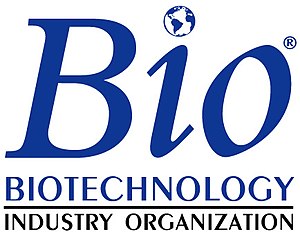
Image via Wikipedia
Agricultural biotechnology continues to provide important economic and environmental benefits and is making positive contributions to global food production and food security, according to the latest annual update report of global biotech crop impacts prepared by UK-based PG Economics.
“As the report points out, biotech crops help increase agricultural productivity while reducing on-farm fuel use and greenhouse gas emissions and lessening the need for insecticides and pesticides,” says Sharon Bomer Lauritsen, executive vice president for food and agriculture for the Biotechnology Industry Organization (BIO).
“In addition, farmers – especially those in developing countries – are seeing the economic benefit from biotechnology thanks to increased crop yields and reduced production costs. This is especially significant at a time when food availability is becoming more of an issue around the world.”
The PG Economics annual Global Impact Study quantifies the impact of agricultural biotechnology on the environment and on farmer incomes since biotech’s commercialization in 1996. Among the key findings:
Biotech crops have contributed to significantly reducing the amount of greenhouse gas emissions from agricultural practices. This results from less fuel use and additional soil carbon storage from reduced tillage with biotech crops. In 2009, this was equivalent to removing 17.7 billion kg of carbon dioxide from the atmosphere or equal to removing 7.8 million cars from the road for one year.
Biotech crops have reduced pesticide spraying (1996-2009) by 393 million kg (-8.7 percent). As a result, the environmental impact associated with herbicide and insecticide use on the area planted with biotech crops decreased by 17.1 percent.
Farmers who grow biotech crops have seen substantial net economic benefits at the farm level amounting to $10.8 billion in 2009 and $64.7 billion for the fourteen year period.
Of the total farm income benefit, 57 percent ($36.6 billion) has been due to yield gains, with the balance arising from reductions in the cost of production.
Since 1996, biotech traits have added 83.5 million tonnes and 130.5 million tonnes respectively to global production of soybeans and corn. The technology has also contributed an extra 10.5 million tonnes of cotton lint and 5.5 million tonnes of canola.
To download the full report, visit www.pgeconomics.co.uk
Upcoming BIO Events
BIO Intellectual Property Counsels Committee Spring Conference and Committee Meeting
April 13-15, 2011
Seattle, WA
World Congress on Industrial Biotechnology & Bioprocessing
May 8-11, 2011
Toronto, Ontario, Canada
Partnering for Global Health Forum 2011
June 27, 2011
Washington, DC
BIO International Convention
June 27-30, 2011
Washington, DC
2011 BIO Human Resources Conference
June 26-28, 2011
Washington, DC
The Business Forum at the BIO International Convention
June 28-30, 2011
Washington, DC
BIO India International Partnering Conference
September 21-22, 2011
Hyderabad, India
BIO China International Conference
October 12-13, 2011
Shanghai, China
About BIO
BIO represents more than 1,100 biotechnology companies, academic institutions, state biotechnology centers and related organizations across the United States and in more than 30 other nations. BIO members are involved in the research and development of innovative healthcare, agricultural, industrial and environmental biotechnology products. BIO also produces the BIO International Convention, the world’s largest gathering of the biotechnology industry, along with industry-leading investor and partnering meetings held around the world. BIO produces BIOtech Now, an online portal and monthly newsletter chronicling “innovations transforming our world.” Subscribe to BIOtech Now.


There are no comments
Please login to post comments